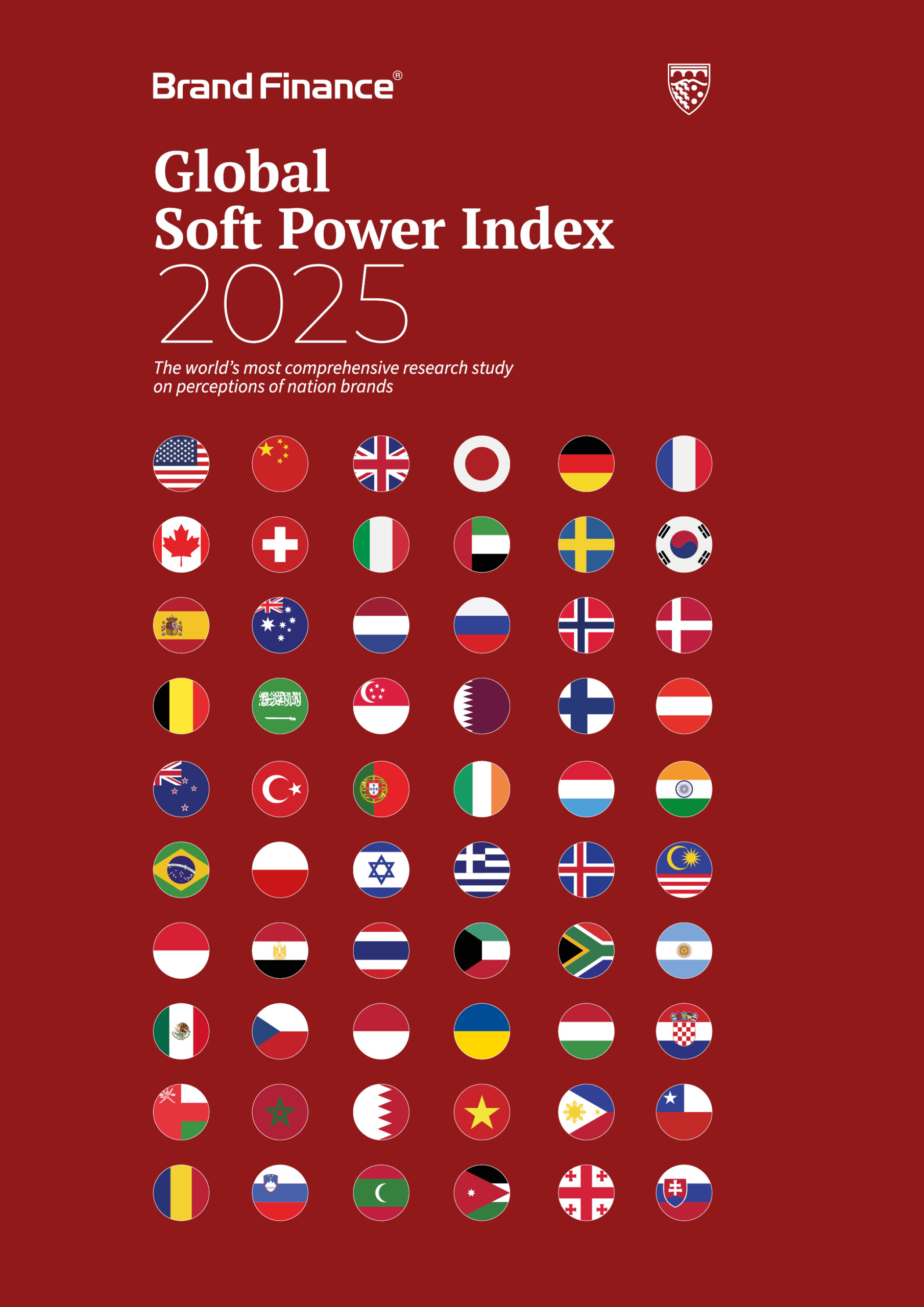This article was originally published in the Global Soft Power Index 2025

Consultant,
Brand Finance

Place Branding Analyst,
Brand Finance
Tourism is more than a leisure activity. How a country is perceived as a place to visit and how desirable a nation as a destination plays a critical role in shaping national reputation and fostering Soft Power.
Empirical evidence demonstrates a strong correlation between positive tourism perception and key dimensions of national Reputation, economic attractiveness, and cultural appeal. In a globally competitive landscape, where differentiation is increasingly challenging, a ‘great place to visit’ serves as an essential conduit for enhancing Familiarity, reinforcing cultural prestige, and stimulating economic engagement. It is one of the 35 attributes measured in the Brand Finance Global Soft Power Index, sitting under the Culture & Heritage pillar, highlighting its role in shaping a nation’s overall appeal through tourism.

The significance of a nation's perception as a travel destination is evident in its measurable impact on various aspects of national attractiveness. Reputation correlates with the ‘great place to visit’ attribute at a rate of 92%, highlighting the close relationship between global regard and appeal as a destination. Furthermore, correlation between ‘great place to visit’ and Recommendation to visit unsurprisingly holds at 98%.
However, what is more surprising is its high correlation rates for the other Recommendation dimensions: working 93%, purchasing products and services 93%, studying 91%, and investing 92%, which reinforces the broad impact of tourism appeal.

Beyond serving as a nation’s first point of contact with the global public, tourism has increasingly become a strategic asset for economic and reputational growth. A strong travel appeal does more than shape initial perceptions—it signals openness, cultural richness, and economic opportunity, making a country more attractive for investment, talent mobility, and global partnerships. Over the past five years, the importance of being perceived as a desirable travel destination has risen dramatically, progressing from the 17th most significant determinant of Reputation in 2020 to the 2nd most influential factor in 2025, surpassed only by ‘strong and stable economy’. This upward trajectory reflects not just the power of first impressions but also the growing recognition of tourism’s role in driving long-term economic growth, strengthening international influence, and enhancing a nation’s competitive standing.
Beyond shaping overall Reputation, tourism plays a direct role in influencing the likelihood of people recommending a country to others. Tourism is frequently a nation’s initial point of contact with the global public. Cultural richness, natural beauty, and hospitality contribute significantly to the formation of first impressions. The advent of social media and digital communication has further amplified this effect, transforming individual visitor experiences into widely disseminated narratives that influence broader public perceptions.
Tourism-driven recommendation extends beyond leisure into work and study considerations. The correlation between positive tourism perception and the attractiveness of a country as a work destination stands at 93%.

Economic opportunity is an essential factor in work migration, yet quality of life, cultural offerings, and recreational amenities also influence decision-making. Many of the world's leading work destinations are also prominent tourist hubs, with Switzerland ranking at the top of both categories. While academic prestige remains a primary factor in international study choices, the surrounding cultural environment is increasingly influential. With a correlation of 91% between tourism perception and recommendation to study, there is clear evidence that a country’s cultural vibrancy, safety, and overall appeal weigh significantly in decision-making for prospective students.
Consumer confidence is similarly affected by tourism, as are investment decisions.
The recommendation of a country’s products and services is 93% correlated with tourism perceptions, an indicator that first-hand exposure drives global consumer trust. Visitors who associate a destination with quality, craftsmanship, and innovation are more likely to develop loyalty to its brands. Japan exemplifies this relationship, experiencing an increase in both a ‘great place to visit’ perception and recommendation for their products and services.
Investment decisions are primarily determined by macroeconomic stability, but the 92% correlation between a country’s desirability as a travel destination and its attractiveness for investment suggests that exposure to infrastructure, ease of doing business, and quality of life contribute to economic engagement. Investors often rely on personal familiarity with a nation before committing resources, making tourism an indirect but vital component of economic strategy.
According to the UN World Tourism Barometer, international travel essentially recovered to pre-pandemic levels in 2024, with most destinations exceeding 2019 numbers. This growth is expected to continue, with the UN predicting that international tourist arrivals will grow 3% to 5% in 2025. Of course, increased travel drives competitiveness in the tourism industry, which further accentuates the necessity of maintaining a strong national brand. More than 100 countries in the Global Soft Power Index now receive high perception scores above 5 out of 10, underscoring the increasing standard for tourism excellence. Given these rising expectations, differentiation through cultural authenticity, unique heritage, and high-quality experiences is now imperative for nations seeking to strengthen their international standing.
Tourism’s influence extends beyond economic advantages, directly contributing to a nation’s Soft Power, defined as the ability to influence the preferences and behaviours via cultural and reputational appeal rather than coercion. By showcasing its values, heritage, and hospitality, a nation strengthens its international image, reinforcing long-term diplomatic and cultural engagement. However, while tourism is an essential element of Reputation, it must be supported by broader economic and structural stability to be fully effective as a Soft Power tool.
Amid intensified competition for talent, investment, and economic engagement, tourism serves as a critical mechanism for national reputation-building. Its impact extends beyond short-term economic benefits, fostering sustained global awareness, trust, and positive sentiment. While economic stability remains the backbone of a nation’s appeal, tourism provides the crucial first encounter that shapes global perceptions and invites long-term engagement.
By prioritising tourism as an instrument of Soft Power, nations can secure a stronger foothold in the global consciousness, reinforcing their position as hubs of culture, commerce, and innovation.

